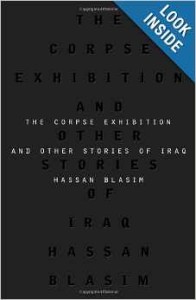Missing the Target: Why the US Has Not Defeated al Qaeda
Frederick W. Kagan, TESTIMONY
American Enterprise Institute, 8 April 2014
All conditions are set for a series of significant terrorist attacks against the US and its allies over the next few years. But that's not the worst news. Conditions are also set for state collapse in Iraq, Syria, Lebanon, Yemen, and possibly Jordan. Saudi Arabia, facing a complex succession soon, is likely to acquire nuclear weapons shortly, if it has not already done so. Turkey and Egypt confront major crises. Almost all of Northern and Equatorial Africa is violent, unstable, and facing a growing al Qaeda threat. And Vladimir Putin's assault on Ukraine is likely to empower al Qaeda-aligned jihadists in Crimea and in Russia itself. That eventuality is, of course, less worrisome than the prospect of conventional and partisan war on the European continent, likely threatening NATO allies. The international order and global stability are collapsing in a way we have not seen since the 1930s. There is little prospect of this trend reversing of its own accord, and managing it will require massive efforts by the US and its allies over a generation or more.
This distressing context is essential for considering the al Qaeda threat today. On the one hand, it makes that threat look small. The long – term effects of global chaos and conflict among hundreds of millions of people across Europe, Africa, and the Middle East on US security, interests, and way of life are surely greater than any damage al Qaeda is likely to do to us in the immediate future. Yet the two threats feed each other powerfully. Disorder and conflict in the Muslim world breed support for al Qaeda, which is starting to look like the strong horse in Iraq and even in Syria. Al Qaeda groups and their allies, on the other hand, powerfully contribute to the collapse of state structures and the emergence of horrific violence and Hobbesian chaos wherever they operate. They are benefiting greatly from the regional sectarian war they intentionally triggered (the destruction of the Samarra Mosque in 2006 was only the most spectacular of a long series of efforts by al Qaeda in Iraq to goad Iraq’s Shi’a into sectarian conflict , for which some Shi’a militants, to be sure, were already preparing) — and have been continuing to fuel.
Al Qaeda is like a virulent pathogen that opportunistically attacks bodies weakened by internal strife and poor governance, but that further weakens those bodies and infects others that would not otherwise have been susceptible to the disease. The problem of al Qaeda cannot be separated from the other crises of our age, nor can it be quarantined or rendered harmless through targeted therapies that ignore the larger problems.
Yet that is precisely how the Obama administration has been trying to deal with al Qaeda.
PDF (6 Pages): 20140408 Kagan on Why US Has Not Defeated Al Qaeda
Continue reading “Berto Jongman: Frederick Kagan on Why US Has Failed to Defeat Al Qaeda”





